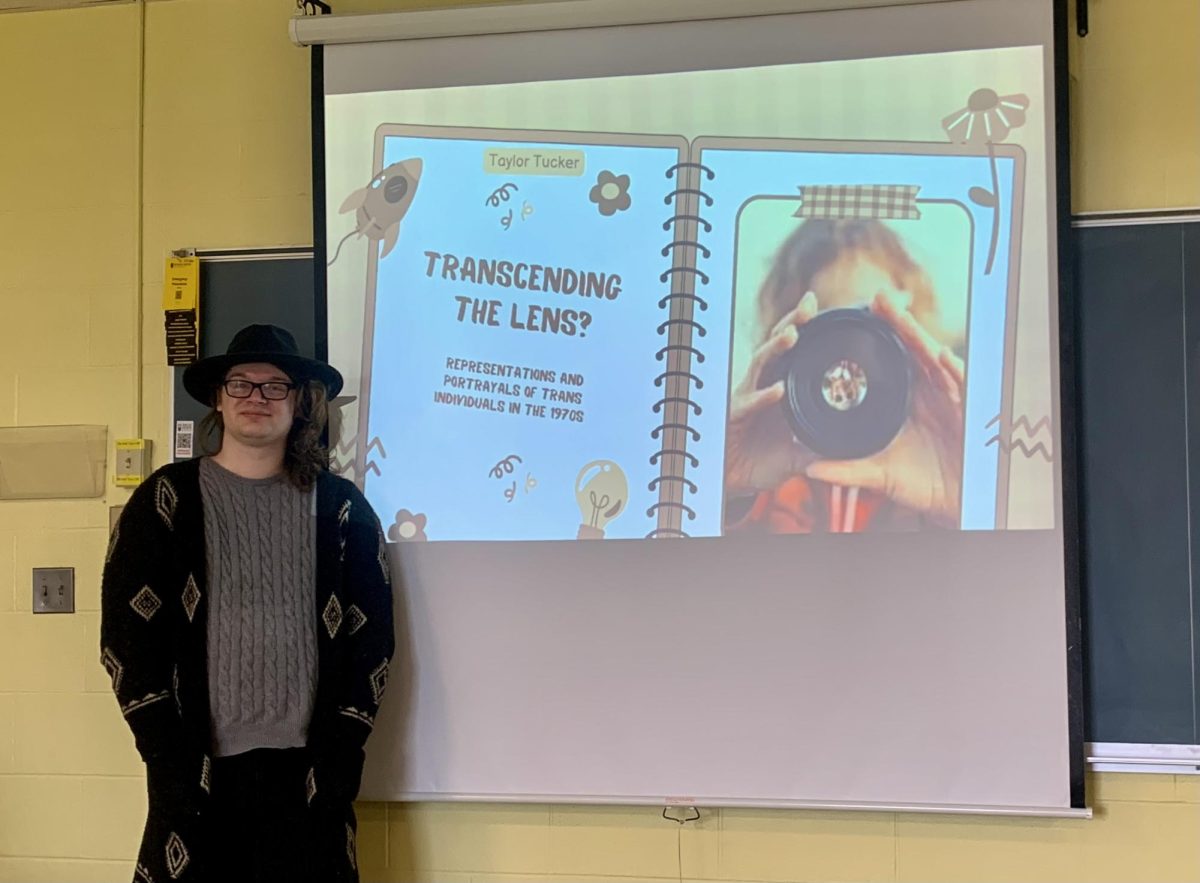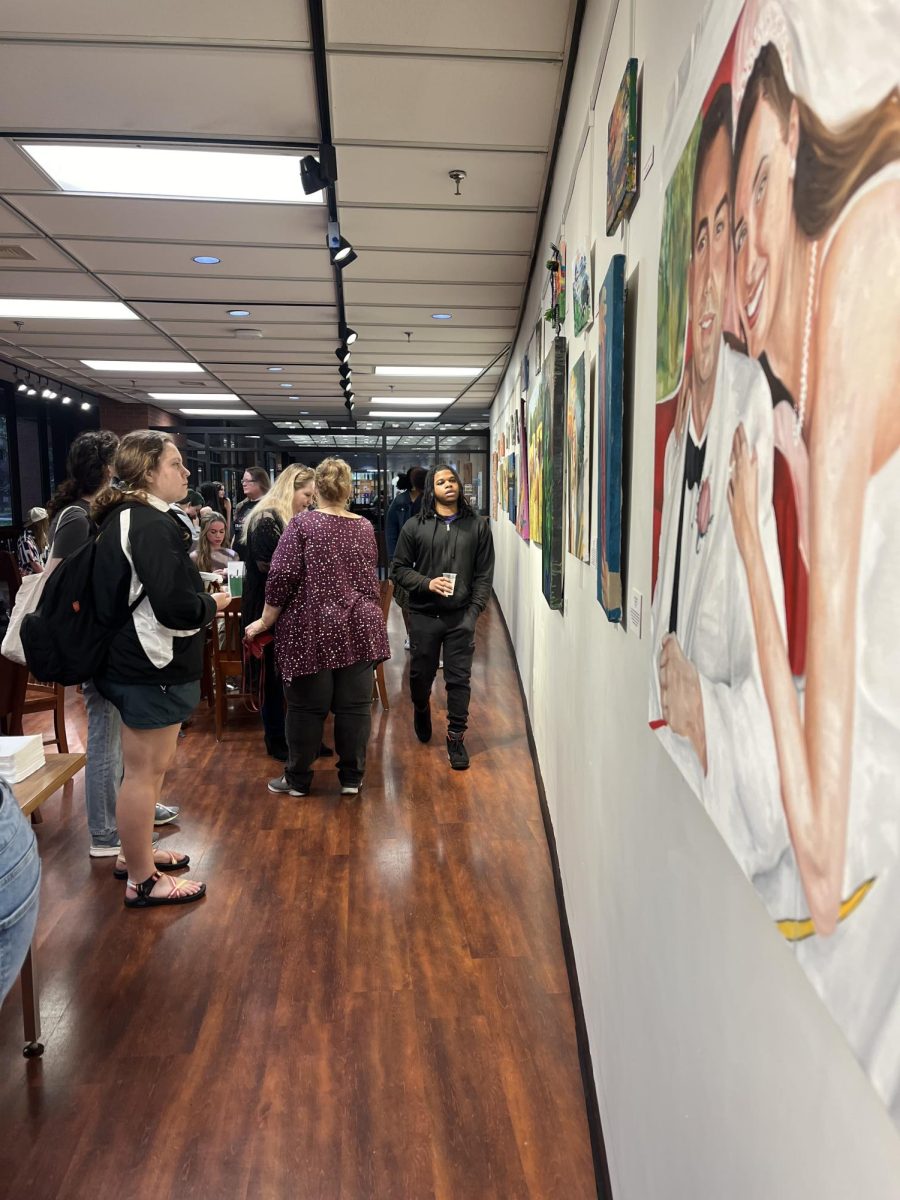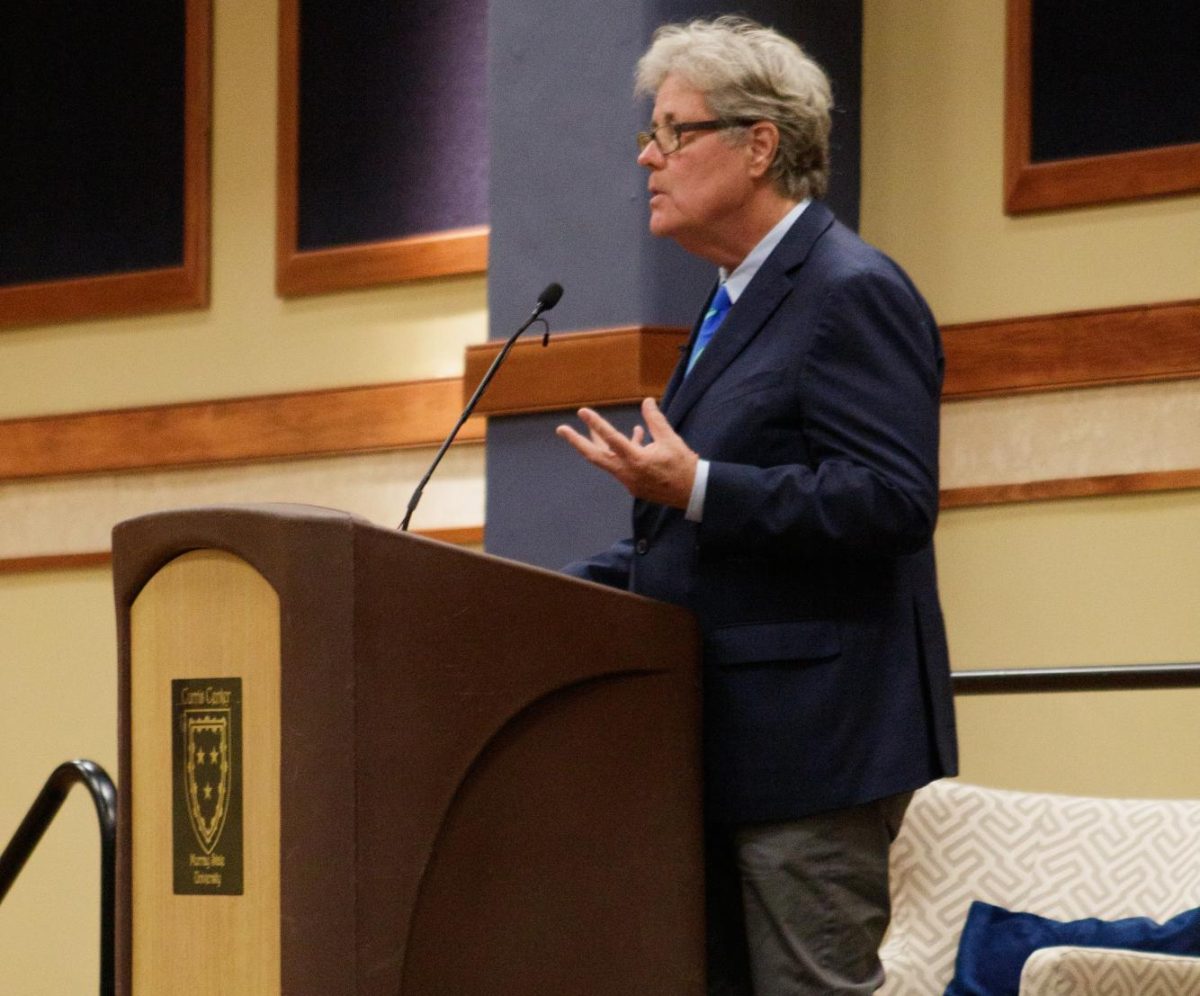David Maraniss discussed his recent biography, “Path Lit by Lightning,” at the Sid Easley lecture on Sept. 28.
The Easley family welcomed the renowned sports writer and historian in memory of the late Sid Easley, who also enjoyed histories of great athletes.
Don Easley, Sid Easley’s son, said some of the most special times he had with his father were visiting historical sites and going to sporting events.
Maraniss began the lecture by explaining how a suggestion from a fan eventually led to the Jim Thorpe biography.
“I didn’t realize it at the time, but [his suggestion] planted a seed that took almost 20 years to grow,” he said.
At one of his book signings, a fan introduced himself and gave Maraniss a packet of information on Jim Thorpe, saying Thorpe should be Maraniss’ next book topic.
Maraniss said he found it interesting but never wrote without personal inspiration and ambition. However, the fan’s suggestion sparked interest, which led to Maraniss’ passion for Thorpe’s story.
“I realized at some point around 2018 that Jim Thorpe is one of the three perfect figures to write on drama and sports,” Maraniss said.
He had already written biographies on Vince Lombardi and Roberto Clemente in 2000 and 2007, respectively, but decided to use Thorpe to create a trilogy of sports histories.
Maraniss said Thorpe’s ability to succeed in track, football and baseball made him stand out among other athletes.
“I saw that through his life I could illuminate the Native American experience and use sports to illustrate his life,” he said.
One of the main narratives throughout “Path Lit by Lightning” is the boarding schools where Native Americans were sent to conform to colonial culture. Throughout his life, Thorpe attended three different schools.
“[These schools were] stripping them of their heritage and culture, making them stuck in between two identities,” Maraniss said.
He said the most haunting place he visited when researching Thorpe’s life was the student cemetery at one of the boarding schools Thorpe attended.
Maraniss recalled his four pillars of writing, one of which was “go there.” He said this was not possible for the Thorpe biography, because he wrote during the lockdown of COVID-19, when traveling was not possible.
He said he heavily relied on archives around the country that preserved Native American life.
Maraniss said he was able to visit the stadium in Stockholm, Sweden, where Thorpe won his Olympic medals.
“[It] made me feel, almost spiritually, what Jim Thorpe did there,” he said.
Maraniss said Native Americans were often misrepresented in the media during that time, such as in Old Western movies.
“The understanding of the native Indian people in America at that time is that they were romanticized and diminished at the same time,” he said.
Maraniss wrote this ethical injustice into the biography by narrating how the press would always call Thorpe “chief” or “warpath” when writing stories about him.
Maraniss said this biography was difficult to end.
“As I was writing the last ten chapters of the book, I kept saying, ‘something better has to happen,’ even though I knew what the ending was,” he said. “I wanted something better to happen, knew it wouldn’t, and had to then deal with the question of, ‘Is this a tragedy or not?’”
Maraniss said he decided this story was not a tragedy, but rather an effort to “illuminate the Native American experience.”
Maraniss is currently working on a big story about State Representative Jim Jordan for the Washington Post, but his next book is going to be about boxer Jack Johnson.
“[This book will] explore race in America and the cultural ways Jack Johnson has reverberated through the decades,” he said.
His presentation was filmed and is to be posted to the Murray State University website soon.









































































































